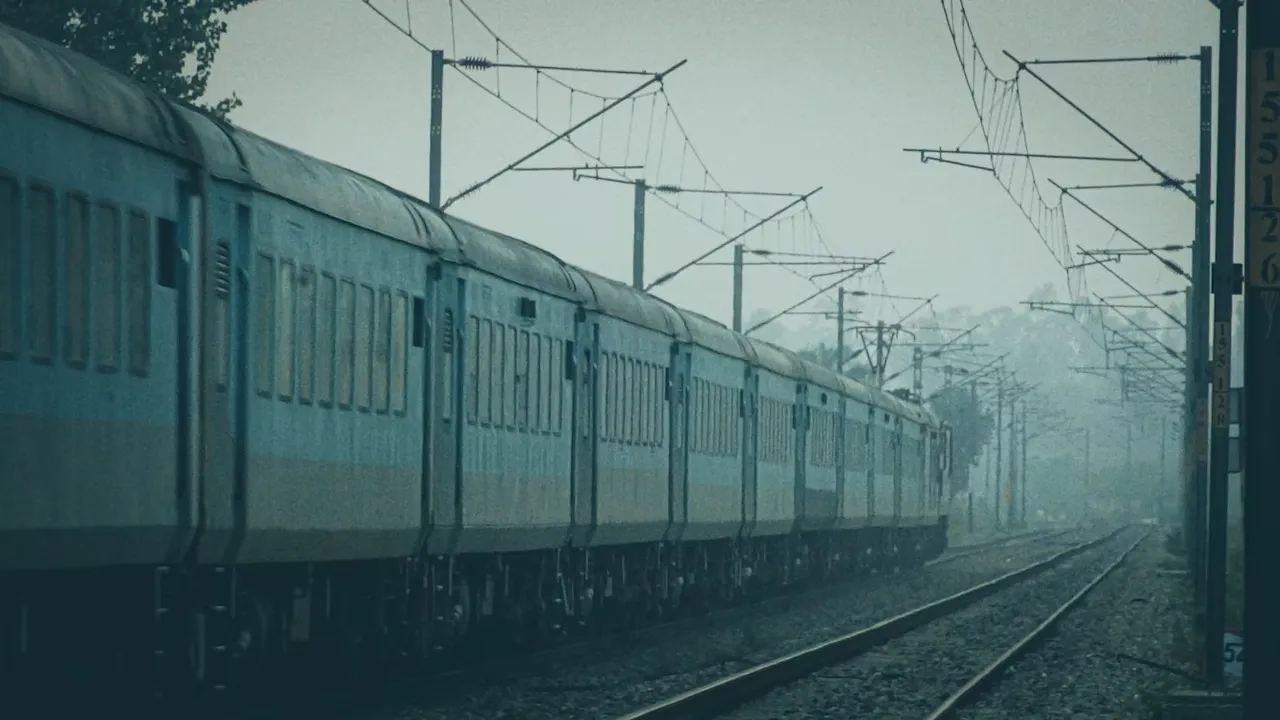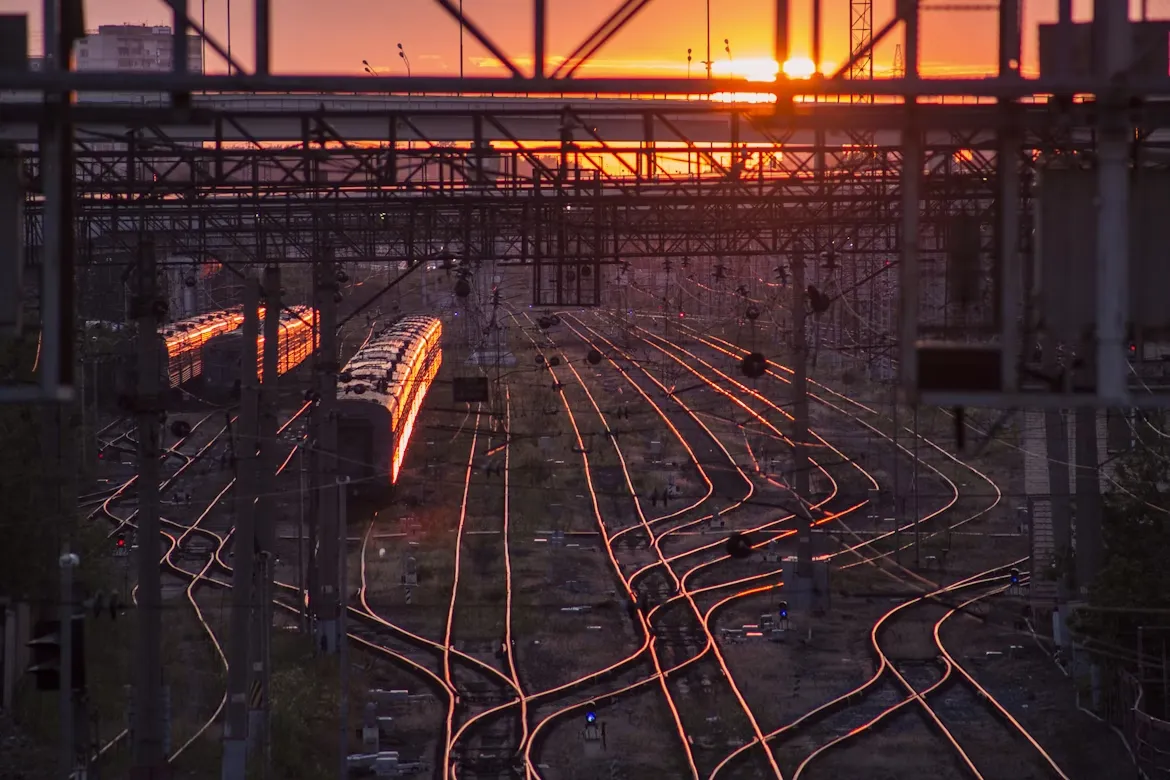Indian Railways is such a backbone that not only connects the country but also unites it. Whenever we cross a railway line and hear the sound of a train, it is not just a train, but a symbol that comes to mind for the people. Employment and success go hand in hand and the Indian Railways can be judged not only by its network but also by its influence. This colourful moment of a transportation system takes every Indian to a new country(Nepal, Bangladesh, and Pakistan(closed since 2019)).

When the British started the first passenger train between Mumbai and Thane in 1953, they probably never thought that one day this small railway line would turn into such a big empire today Indian Railways is the largest railway network in the world and with a network of more than 68000 kilometres, this network transports crores of people from one place to another every day and more than 20000 trains run every day. Some are passenger, some are mail express, some are goods and some are super fast.
The publicity of railways is not limited to cities they are in villages, towns, forests, and hilly areas railways have spread their magic everywhere and from a small village in Bihar to the seashore of Tamil Nadu, the railway reaches everywhere and it is the only thing that connects the country not just physically but emotionally as well and railways have a different impact on people's minds and since childhood, whether it is about travelling from a village to a city or going to a relative's house, the desire for a train is in the heart.
The manufacturing of Indian Railways is not a miracle, and every year, net prices are sent in. New junctions are made and new technology is used in it and the work of electrification is being done rapidly so that the dependency on diesel can be reduced and environmentally friendly systems can be made and now the concept of bullet train has also come on the ground in India. Where not only convenience will be there but also speed Mumbai Ahmadabad Bullet Train Project is a representative example and seeing this it seems that India too has now entered the era of high-speed mobility.
The huge network of railways is not limited to just travelling, it is also a great entertainment organisation and thousands of people work in railways. Engineers, drivers, city stations, masters, maintenance workers, please stop and planners, every person is a part of this huge organisation in his way and every day the livelihood of someone's house runs because the railways and railways have not reduced unemployment but also given a social life to the people.
A railway station is a small world in itself and everything from the tea sellers to the book stalls on the platform make it seem that it is not just a halt on the train but a precious part of the journey. Some stations are so big that it is okay to have a rest chamber in them, like Howrah station, Chhatrapati Shivaji Terminal and New Delhi station. Every station has some form of identity of the respective city.
The class of Indian Railways has now reached the digital age and today tickets can be booked from home through IRCTC. The live status of the train can be checked. Catering can also be customised and that means the journey will not only be comfortable but also smart and mobile and Wi-Fi enabled stations and i-drive schedule management all this shows that railways have also become a strong part of digital India.

The contribution of railways is also not less in the economy and everything be it agricultural produce or industrial goods is transferred efficiently from one place to another through railways and Freight trains have taken logistics to a new level. Taking goods from the airport to delivering goods to remote areas. All this happens through railways and this is why railways are also called the lifeline of India's economy.
Railways have played a huge role in promoting tourism in the country and mountain areas like the Darjeeling Himalayas, heritage trails like railways and luxury status like Place on Wheels have not only shown development to the people of the country but have also attracted foreign tourists and through railways, people have not only been successful but have also experienced their culture, tradition and different colours of life.
In a vast country like India where there are conflicts of language, caste, religion and culture, only one thing unites everyone. That is when a Punjabi person sits next to a devotee from Tamil Nadu in a sleeper coach, new friends are made. Relationships are formed and when an old woman sells tea at a station, blessings are given and that is just one transaction and one culture is united.
Railways have faced many challenges in their development funding, issues of accidents and maintenance and every year with the help of reforms railways keep on improving themselves and private partnerships, stationary development and semi-high speed trains like Vande Bharat Express are the proof of the fact that Indian Railways is not just a cover of past but also a promise of the future. Hence even today when we talk of India's progress then railways play a fundamental role in it. The development of new cities, the opening of new markets and the opening of new industries are incomplete without steel and Indian Railways is not just a mode of transfer but a passion. It is a zeal and the real identity of an Indian.

This extensive rail network has given a new direction to India and as long as trains keep running on the railway line, India keeps progressing and this is such a journey that there is no end station. New turns will keep coming and there are dreams in it today Indian Railways is the backbone of the Indian economy and it has played a very big role in providing us the means to travel it has also been running as an insurance for so many years that nothing will happen. All these things make Indian Railways a very good network because there is no network as good as that of Indian Railways in the whole world.
THANKS FOR STOPPING BY.
RANJAN02